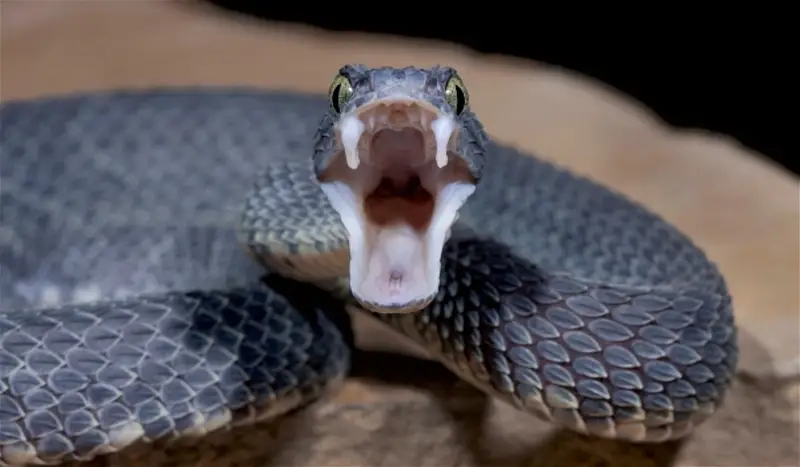
If you, a man, were bitten by a snake as you slept, what would your first reaction be? To scream? Dive out of bed? Run?
Santosh Lohar had a different reaction and bit the snake to death in retaliation.
The 35-year-old from Panduka, Kharkhand in India, had been sleeping when the reptile attacked him. This prompted him to take the unusual tactic of quickly grabbing the reptile with an iron rod and biting it twice.
Work was underway to lay railway lines in a forested area when the attack occurred at the labourer’s base camp.
When Lohar was asked why he bit the snake back, the man told India Today: ‘In my village, there’s a belief that if a snake bites you, you must bite it back twice to neutralize the venom.’
Snake venom
Although a venomous snake bite can prove lethal, a human biting the snake would have little consequences. It simply puts the person at risk of receiving another attack.
This is because snake venom is stored in the reptile’s gland and is only triggered when it enters the bloodstream. Otherwise, it’s just a protein-like substance.
In fact, snake venom has been used in medicine to treat many conditions including cancer, high blood pressure, heart attacks, strokes, and Alzheimer’s and Parkinson’s disease.
The type of snake that attacked Lohar has not been confirmed. He was rushed to a nearby hospital where he was given an anti-venom antidote and released the following day.
Indian snakes
Bihar, the region where the railway construction was underway, is one of the top three states in India that accounts for the greatest number of snakebite attacks. It amounts to roughly 4,500 annual deaths.
India is home to nearly 300 snake species. More than 60 of them are highly venomous. These include the Indian Cobra, Russell’s viper, the common krait, and the saw-scaled viper.
These are often called the ‘Big Four’ because of their powerful venom and the number of snake bites they cause each year.
Source | Vanguard










